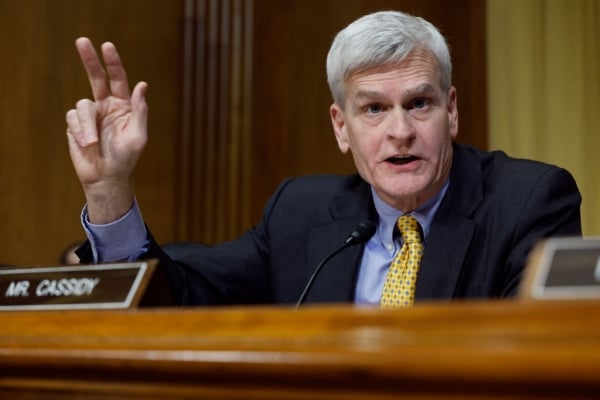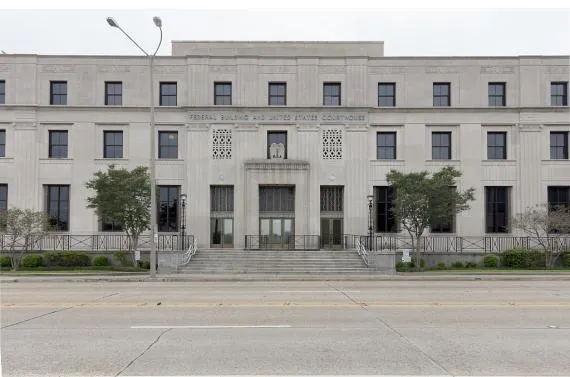I came of age intellectually in an era of big nonfiction books, both popular—like Silent Spring, The Feminine Mystique and Unsafe at Any Speed)—and academic, by such scholars as Eugene Genovese, Erving Goffman and Thomas Kuhn.
That era was followed by a succession of truly path-breaking scholarly books. Among the greatest were Orlando Patterson’s magisterial history of freedom and the making of Western culture and Theda Skocpol’s study of states and social revolution.
That age appears to be over. Sure, important nonfiction books still appear. Isabel Wilkerson’s The Warmth of Other Suns and Caste stand out, as do, on the academic side, historian Sven Beckert’s Empire of Cotton and economist Robert Gordon’s The Rise and Fall of American Economic Growth.
Instead, the era of the big book has been increasingly succeeded by the era of the long-form nonfiction essay. Indeed, I believe we are living in the golden age of such essays.
Those essays take a variety of forms. There are riffs on books, like Adam Gopnik’s recent reflections on the role of Camille Pissarro in the flowering of Impressionist painting, that can be found in The New Yorker and the London, Los Angeles and New York Review of Books. Then there are the Substack-like essays of political and economic commentators like Noah Smith and Matthew Yglesias. Then, too, there are the essays that fill the pages not just of The Atlantic, Harper’s, The Nation and The New Yorker, but a host of digital magazines of ideas, philosophy and culture commentary and analysis with much smaller circulations, like Aeon, The Boston Review, Liberties, Quillette and UnHerd.
Of course, the rise of the long-form nonfiction essay didn’t occur overnight. There were many forerunners, of which the most famous and influential certainly includes John Hersey’s 1946 New Yorker piece on Hiroshima. But a new era arose around the time that Robert Putnam published his “Bowling Alone: America’s Declining Social Capital” in The Journal of Democracy in 1995.
It became increasingly clear that essays, rather than the books that inevitably followed, had the biggest impact. Among the most recent influential essays were Greg Lukianoff and Jonathan Haidt’s 2015 essay “The Coddling of the American Mind” and Jean Twenge’s 2017 article “Have Smartphones Destroyed a Generation?”
To that list, I add a recent essay by Len Gutkin entitled “A Decade of Ideological Transformation Comes Undone.” This is one of those essays that I wish I had written myself. It’s provocative, powerful and persuasive. On a highly charged topic, it’s also remarkably subtle and nuanced.
Not just a capsule history of the rise of identitarian and social justice activism on college campuses and the reaction that this has provoked, but thoughtful reflections about how and why this nation’s most elite universities embraced a kind of illiberalism: retreating from an earlier conception of meritocracy; weakening or, in some cases, abandoning due process protections; embracing (abetted by students and the courts) new forms of in loco parentis; reducing grading standards; and witnessing the emergence of a culture of intellectual and ideological intolerance in the name of diversity, equity and inclusion.
Gutkin offers a litany of examples of how some of this country’s wealthiest and most selective campuses became intellectual bubbles, tolerating a culture of bullying, disruption and self-censorship while, to a shocking degree, abandoning a commitment to civil discourse and diversity of thought. I might add that these schools also, in some instances, embraced double standards in their handling of questions of bias, sexual harassment and scholarly integrity.
In line with some recent scholarship, Gutkin links changes in campus cultures to broader shifts in the American parenting styles and in society more broadly, including the embrace of “safetyism,” the idea that psychological and emotional well-being has become the supreme value, trumping other considerations, including open dialogue and intellectual freedom. The term implies protection against any physical, psychological and emotional threats and the avoidance of risks and anything that might be deemed offensive or distressing. In some ways, a necessary and compassionate response to real traumas and threats to well-being and mental health, safetyism can be counterproductive, impeding the development of resilience and coping skills by restricting exposure to essential and commonplace life experiences.
Let me be clear: Gutkin is not a political or ideological conservative, and his essay is anything but a right-wing screed. Indeed, it’s all the more powerful precisely because it is a cri de coeur from someone who obviously loves the college campus, humanistic scholarship and the humanities in particular.
I read his essay as a lament: for how the humanities have backed away from an ideal of intellectual pluralism and, to a remarkable extent, embraced an activist and political self-image. In the process, campuses lost sight of the humanities’ larger purpose.
That purpose is to foster moral and ethical understanding, cultivate civic responsibility, and prepare individuals for lives of public service and leadership. The goal is to produce graduates who are eloquent, persuasive communicators and who have acquired the philosophical and critical reasoning skills essential for understanding and debating complex issues. Then there is yet another aim: to instill cultural literacy and an appreciation of history, literature and the arts and therefore enrich the human spirit.
Instead of providing students with the kind of humanistic education that a college graduate needs—global in scope, comparative in perspective and attentive to history, ethics and the richness of the visual, literary, performing and applied arts—we have instead reduced the humanities to a series of check-box, discipline-based survey courses. I fear that in too many cases, humanities faculty members have confused cultural and societal critique for critical thinking and substituted ideologically rendered judgment for critical evaluation.
Marx famously said, “The philosophers have only interpreted the world, in various ways. The point, however, is to change it.” How might elite institutions cultivate more pluralistic campus cultures?
Some steps strike me as appropriate. How about requiring newly admitted students to sign some kind of contract? Or following the Chicago and Columbia examples and requiring core courses in political and moral philosophy?
Here are some more ambitious actions these campuses might take:
- Rededicate DEI offices to student success and outreach to high school and community colleges. Yes, campuses need to enforce unbiased hiring practices. Yes, schools should develop talent-development programs for historically underrepresented employees. Yes, faculty and supervisors need to understand how unconscious biases can affect decision-making and interpersonal relationships. Yes, we should encourage instructors to adopt culturally appropriate teaching strategies including universal design for learning. But in the end hiring, promotion, curricular design and pedagogy are—and should be—faculty responsibilities. Our highest priority should be to devote more resources in other areas: recruitment, advising, supplemental instruction and professional development.
- Host forums on hot topics. These forums should represent a variety of expert points of view and give students opportunities to ask questions and vent.
- End legacy admissions and privileged status for donors’ children and athletes in “country-club” sports. These practices are anathema to our ideal of democratic access to higher education.
- Require students at elite campuses to participate in community service. Examples might include serving as interns with local charities, nonprofits, schools, hospitals or other civic organizations; engaging in community-focused research projects in collaboration with local organizations; acting as mentors or tutors in local schools, community centers and after-school programs; and participating in nonpartisan civic engagement projects like voter registration drives or community forums and environmental sustainability initiatives like recycling or community gardens.
- Do much more to serve the public and the higher ed ecosystem as a whole. The original edX vision wasn’t misguided. It was simply abandoned. There are many ways that elite institutions could serve sister campuses: by developing instructional resources and tools. By making all lectures, workshops and performances available for free online. By hosting professional development and other training opportunities at a minimal cost. I’m sure you can think of other possibilities.
The cultures of this nation’s elite campuses need to change. After all, these institutions play an outsize role in shaping the public’s perception of higher education. For better or worse, these schools set the standards for the kind of education and support services students receive. In addition, these colleges and universities give their graduates unique advantages in entry into society’s most prestigious, influential and financially rewarding roles.
Spider-Man has it right: with great privilege comes great responsibilities.
Our elite institutions suffer from an underdiagnosed syndrome: responsibility deficit disorder. In too many instances, they fail to hold their leadership or their students to account. They have failed to acknowledge wrongdoing—for example, by admitting that they discriminated against Asian American applicants, accepting responsibility for recent violations of academic freedom and conceding that they have failed to hold faculty and administrators to the same standards of academic honesty as students.
Their students, too, have been derelict: receiving huge social advantages without any obligation to give back.
It’s high time, in my view, for these colleges and universities to undergo a campuswide culture change: to own their privilege and recognize that advantage begets more advantages and that, therefore, these institutions owe big.
For many reasons, the concept of noblesse oblige—the obligation of those with wealth, power and privilege to act with generosity to the disadvantaged—has fallen out of fashion. The very phrase seems paternalistic and patronizing, condescending and snooty.
Yet, the underlying principle—that those with the most resources owe a debt to the wider community—is one that elite institutions should embrace. Otherwise, I feel sure that their privileged position will be subject to concerted and unending attack.





















Discussion about this post